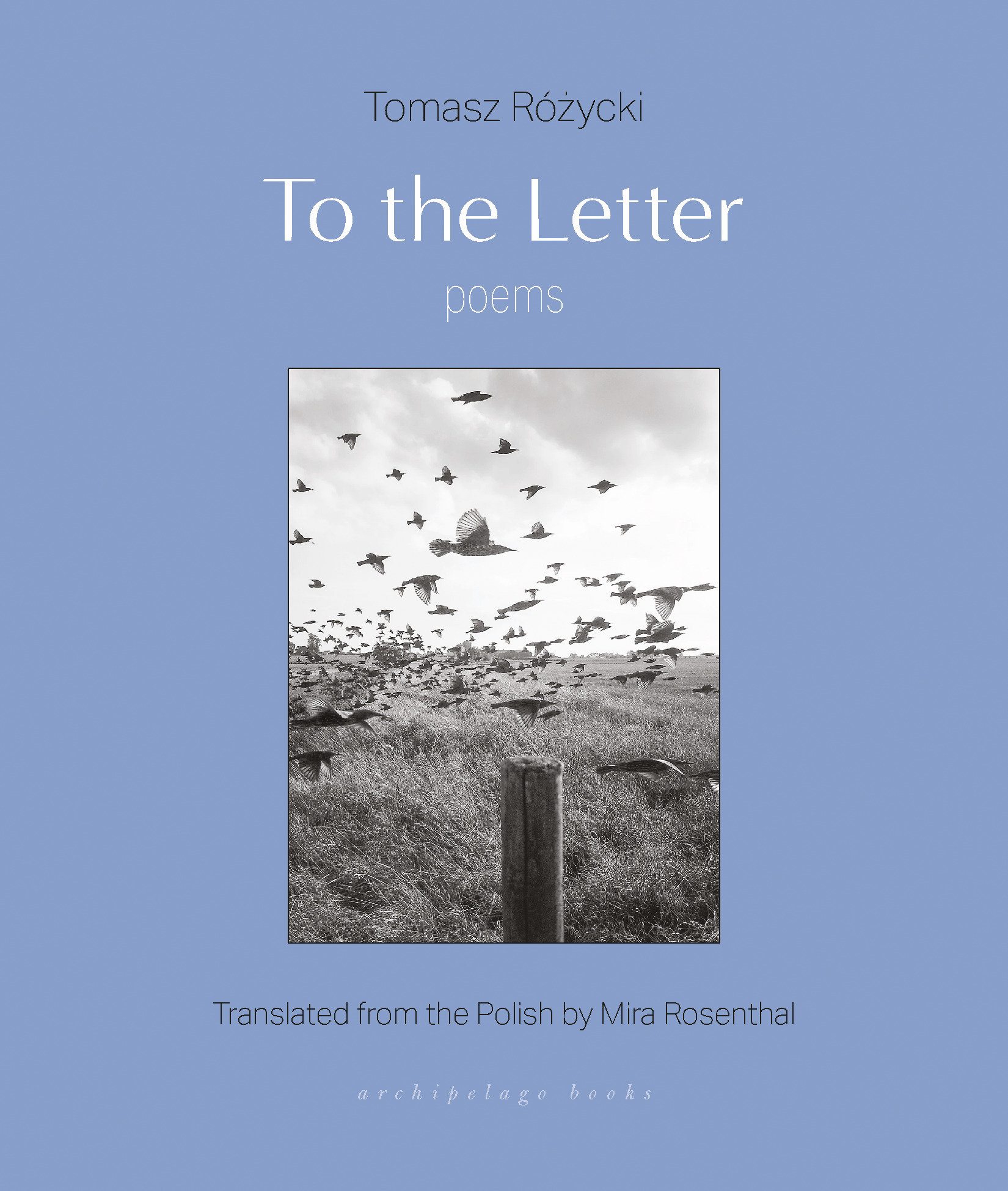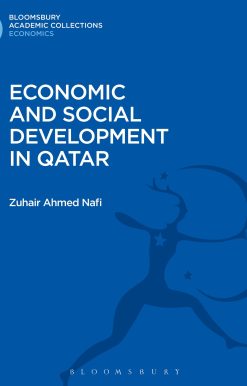No gift registry found click here to create new registry
Cart contain Gift Registry Items cannot add products
To the Letter: Poems
| by |
|---|
14.00 JOD
Please allow 2 – 5 weeks for delivery of this item
Add to Gift RegistryDescription
Frank, acute, and intimate poems of human loss, resilience, and love – detective poem, historical hopscotch, love story “A truly lyrical longing for the world to be transformed.”—Polish Book InstituteRóżycki collects moments of illumination – a cat dashing out of a window and “feral sun” streaking in, a body planting itself in the ground like rhubarb and flowering. He collects and collects, opens a crack, and clutches a shrapnel of epiphany.Tomasz Różycki’s To the Letter follows Lieutenant Anielewicz on the hunt for any clues that might lead 21st century human beings out of a sense of despair. With authoritarianism rising across Eastern Europe, the Lieutenant longs for a secret hero. At first, he suspects some hidden mechanism afoot: fruit tutors him in the ways of color, he drifts out to sea to study the grammar of tides, or he gazes at the sun as it thrums away like a timepiece. In one poem, he admits “this is the story of my confusion,” and in the next the Lieutenant is back on the trail. “This lunacy needs a full investigation,” he jibes.He wants to get to the bottom of it all, but he’s often bewitched by letters and the trickery of language. Diacritics on Polish words form a “flock of sooty flecks, clinging to letters” and Lieutenant Anielewicz studies the tails, accents, and strokes that twist this script.While the Lieutenant can’t write a coherent code to solve life’s mysteries or to fill the absence of a country rent by war, his search for patterns throughout art, philosophy, and literature lead not to despair but to an affirmation of the importance of human love
Additional information
| Weight | 0.93 kg |
|---|---|
| Dimensions | 1.12 × 13.97 × 18.34 cm |
| PubliCanadation City/Country | USA |
| by | |
| format | |
| Language | |
| Pages | 145 |
| publisher | |
| Year Published | 2024-1-9 |
| Imprint | |
| ISBN 10 | 1953861725 |
| About The Author | TOMASZ RÓŻYCKI is the author of eleven volumes of poetry and prose. Over the last decade he has garnered almost every prize Poland has to offer as well as widespread critical acclaim, with work translated into numerous languages and frequent appearances at international festivals. In the U.S., he has been featured at the Unterberg Poetry Center, the Princeton Poetry Festival, and the Brooklyn Book Festival. His volume Colonies (translated by Mira Rosenthal) won the Northern California Book Award and was a finalist for numerous other prizes, including the International Griffin Poetry Prize and the Oxford-Weidenfeld Translation Prize.MIRA ROSENTHAL is the author of The Local World, which won the Wick Poetry Prize. She is the recipient of a National Endowment for the Arts Fellowship and Stanford University’s Stegner Fellowship, and her work appears regularly in such journals as Poetry, Ploughshares, Threepenny Review, Guernica, Harvard Review, New England Review, A Public Space, and Oxford American. Her honors include a PEN/Heim Translation Fund Award, a Fulbright Fellowship, a grant from the American Council of Learned Societies, and residencies at Hedgebrook and MacDowell. She teaches creative writing at Cal Poly and lives on the central coast of California. |
"In this philosophical collection that explores doubt—regarding language, God, and the prospect of repeating history—many poems address an unreachable “you” who could be a lover, a deity, or a ghost of someone long dead. Rosenthal’s translation draws out these poems’ shades of melancholy and whimsy, along with the slant and irregular rhymes that contribute to their uncanny humor. Różycki’s verse teems with sensuous, imaginatively rendered details." — The New Yorker“Across the ninety-nine poems of Polish poet Tomasz Różycki’s To The Letter, presides a calling out to absence, often in the form of this “you” whether in loss—cultural, global, personal—or self-examination . . . This collection has, perhaps, added resonance landing in 2023: “You—out there where the future pushes through like a worm from an apple, only the hole is in heaven and so enormous we’ll all fall in, along with tenements, convenience stores, our entire state—let’s say it’s nowhere—” A notable contribution to Polish poetry available in English–and a vital living voice, no less.” — Rebecca Morgan Frank, LitHub“We live in feral times,” the poet says, asking us “what shape this era will carve / in flesh.” In Mira Rosenthal’s exacting, beautiful translations, Tomasz Różycki's work gives us a moment of honest assessment, answering hard questions without patronizing, with lyric precision. One of Poland’s best living poets, he is writing at the height of his powers. Which, for me, means: there is mystery in his work, that feels trustworthy—“we will dig ourselves out of our private muck /of subtext, shed the weight,” he says, “and fly off, empty, for the nearest lightbulb.” It is amongst the quotidian that he seeks to be saved, his is a vision in which despite all the tragedy of this new century, the thrush that sings “at two a.m. outside /our window in the parking lot has saved / the day, the month.” If that is to be our new metaphysics, count me in. — Ilya Kaminsky, author of Deaf Republic and Dancing in Odessa"The poems are intimate and wry, philosophically complex, and charged with metaphors for absence and language itself." — Dana Isokawa, Poets & Writers Magazine“Irony is the spice of poetry . . . Różycki’s irony can be caustic (“some people are so poor the only thing they have/is money, money”), or it can be sublimely political . . . Rosenthal deserves special praise for rendering Różycki’s wordplay, musical density, and metonymic dazzle into powerful English . . . Różycki’s poem as “rolled-up paper/gun” is a handmade, fragile, but potent technology for survival.” — Ange Mlinko, The New York Review of Books"The past will never leave us. It will haunt our photographs; it will speak between the words that we read and write. Różycki’s collection, brought to us through Rosenthal’s beautiful translation, helps us remember that it is art that will lead us through to a bearable future, and art that will always speak the unspeakable.” — Iris Dunkle, Words Without Borders"Mysterious events in Agualusa’s stories reveal a kinship with García Márquez, whereas events of mysterious ambiguity fall into Bolaño’s camp . . . Daniel Hahn’s translation successfully conveys that straight-faced equanimity needed for staring absurdities in the eyes.” — Tom Bowden, The Book Beat"[Mira Rosenthal’s] English iterations fully relay the poems’ accessibility, music, and humor—as well as the ways they integrate into surprising valences with creativity, love, and interbeing . . .To the Letter reminds us that fragmentation offers an opportunity to listen and create, that the blank spaces between words are places in which new life may yet be lived. It reminds us that the reader is doubly alive, watching and being watched, even from the shadows.” — Michael Collins, Asymptote Journal"For Różycki, the void is . . . about loss—whether of the place he was forced to flee, or of the life he missed out on as a consequence . . . Where poetry usually stops at anguish, Różycki goes the whole length to realize the fullness of a proxy conjured by loss, the stranger who lives on in the mind." — Janani Ambikapathy, Harriet Books (the blog of the Poetry Foundation) |
|
| Table Of Content | I: Vacuum Theory 1. Meadow 2. White Dwarf 3. Scenario 4. To Give Water to the Thirsty 5. First Poem for Menelik 6. The Garden 7. Phantom 8. The Third Millennium 9. When Do Acacias Bloom? 10. The Place of “I” 11. The Clock 12. Twelve Letters 13. Pointers 14. Heat Wave 15. The Crisis of Polish Readership 16. There Is No Answer 17. Ż/Ś 18. Lavinia 19. Vacuum Theory 20. Mirror 21. Elements 22. The Measure of All Things 23. A Room 24. Dog 25. A Few Hours 26. Rain 27. A Photograph 28. Wild Strawberries 29. Updraft 30. Poor Painters 31. Via Giulia 32. Metamorphoses 33. At the End of the Day II: The Third Planet 34. Chaos Theory 35. Effigy 36. Ghost 37. Message 38. Inheritance 39. A Turn 40. Essential Features 41. Hair by Hair 42. The Eternal War of Opposites 43. Glass Houses 44. This Era 45. Clay 46. Contract 47. Cocoon 48. Settings 49. Euromaidan 50. An Act of Speech 51. Lacki Brzeg, Ukraine 52. In the Cave 53. Revenge Bank 54. Squiggle 55. My Consultants 56. Warsaw Saw War 57. Demolition 58. Two Days’ Time 59. The Third Planet 60. Rhythm, Order and Position 61. Distillery 62. Even Now 63. The Crisis of the Polish State 64. Wind 65. Stone 66. What of Him? III: Summer of Music 67. Summer of Music 68. Sorting 69. Why 70. Scent 71. Formula 72. Summertime 73. Porta Susa 74. The Law of Conservation of Energy 75. The Warmest Place 76. All-Night Shops 77. Any Number 78. The Crisis of Readership 79. Spring Awakening 80. Virus 81. Puzzle 82. Features 83. Piazza del Nettuno 84. An Unexpected Turn of Events 85. The Silk Road 86. Reverse 87. In the Bushes 88. A Glass 89. This Dog’s Life 90. Outside Prudnik 91. Backpack 92. Never 93. Shadow 94. What Makes No Motion? 95. The Cave of the Nymphs 96. The Divine Comedy 97. Second Poem for Menelik 98. The Trail Goes Cold 99. Open |
| Excerpt From Book | 1. Meadow How did this happen, us going crazy together, and now we’re lying in this trampled grass that buzzes and hums? Around us the massive body of the world turns, this era’s screams and laughter, a jet divides the emptiness in squares, our winged children circle high above, and with your hand you shift the clouds. It’s clear till Sunday, then a front is coming. How did love poison us with verdant venom, how did we end up going crazy together, lying in dense grass, high on each other—and what’s become of time, that hangman with his tools: chains, digits, numbers? A pair of stupid fools: one sound, two letters. It was you I chose, and oh so selflessly they warned that you will make me lose it. The perfume of acacias in bloom is all I have as an excuse. |
Only logged in customers who have purchased this product may leave a review.
Related products
-
Low stock
Add to Gift Registry17.99 JOD -
On backorder 2-5 Weeks to Arrive
Add to Gift Registry140.00 JOD -
On backorder 2-5 Weeks to Arrive
Add to Gift Registry90.00 JOD -
On backorder 2-5 Weeks to Arrive
Add to Gift Registry36.99 JOD






Reviews
There are no reviews yet.